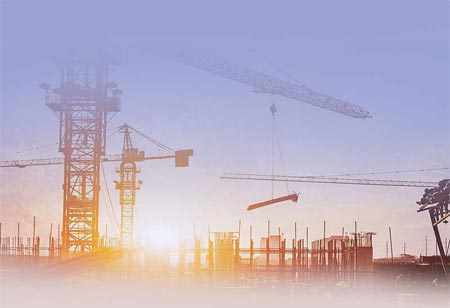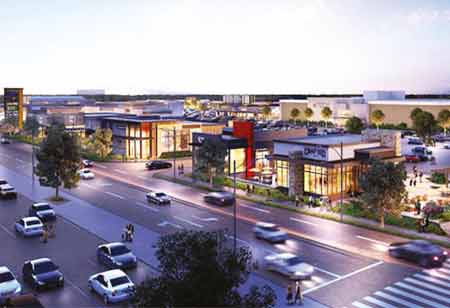Thank you for Subscribing to Construction Business Review Weekly Brief

Embracing The Future: My Journey In Industrial Commercial Real Estate
As a seasoned professional in the field of commercial real estate, I have had the privilege of witnessing the evolution of various asset classes and their impact on commercial real estate. After graduating from Baylor University, I started my career as a General Manager for a nearby outlet center. Having a background in retail and managing various retail stores prepared me well for my introductory position in commercial real estate.
Over the years, I have gained valuable experience working with office, retail, and multifamily properties, each offering unique challenges and rewards. My journey in commercial real estate began with a passion for understanding the dynamics of different asset classes and identifying opportunities for growth and investment. However, it was my foray into industrial commercial real estate that truly captured my attention and solidified my belief in its potential.
Throughout my career, I have developed a deep appreciation for the industrial sector and its potential for growth and innovation. In this article, I will share my personal journey in commercial real estate and explain why I firmly believe that industrial commercial real estate is the wave of the future, and is by far my favorite commercial asset class.
Industrial commercial real estate encompasses a wide range of properties, including warehouses, distribution centers, manufacturing facilities, and logistics hubs. What sets industrial properties apart is their fundamental role in supporting the global supply chain and meeting the demands of e-commerce, manufacturing, and logistics industries. Unlike office, retail, and multifamily assets, industrial properties have a direct impact on the economy by facilitating the movement of goods and the growth of businesses.
One of the primary reasons that I enjoy industrial real estate is because I am always fascinated by what I learn on a daily basis. Whether tenants are using resin pellets to make patio furniture or plastic bags, it always amazes me to see how our tenants utilize their products to create a multitude of products for everyday use. I have been fortunate to have exposure to tenants with a myriad of products or services they provide consumers, so it was always educational to see how they make trampolines, mass-produce eyeglass frames or turn massive rolls of paper into finished goods. Industrial is never boring.
Additionally, industrial commercial real estate has incredible potential for growth and innovation in distribution. With the rise of e-commerce and the increasing demand for efficient logistics and distribution networks, industrial properties have become integral to the success of businesses worldwide.
The evolution of technology and the implementation of automation and robotics have revolutionized the way industrial facilities operate, making them more efficient, productive, and adaptable to changing market demands. A prime example is the growth of e-commerce during Covid. Industrial was able to adapt quickly to navigate the ever-changing needs of demand, and unlike other asset classes, the demand for industrial space increased substantially and continues to be the darling of commercial real estate. In the office, people may choose to work remotely, or in retail, they may decide to fulfil orders online. However, the industry still requires a warehouse and personnel to complete transactions.
"My journey in commercial real estate has led me to appreciate the immense potential of industrial properties and their significance in shaping the future of e-commerce and industry"
While automation may change the future of industrial fulfillment, the prospect of automation in industrial commercial real estate is particularly exciting; it presents opportunities for increased efficiency, cost savings, and operational flexibility. From automated storage and retrieval systems to robotic picking and packing solutions, the integration of automation technologies is transforming the way industrial properties are designed, managed, and utilized. This not only enhances the value of industrial assets but also positions them as key players in the future of global commerce
Furthermore, the resilience of industrial properties in the face of economic fluctuations and market disruptions further reinforces their appeal. Unlike office, retail, and multifamily assets, which are often subject to shifts in consumer behavior and economic cycles, industrial properties remain essential components of the supply chain, providing a stable foundation for investment and growth.
My journey in commercial real estate has led me to appreciate the immense potential of industrial properties and their significance in shaping the future of e-commerce and industry. With the ongoing advancements in automation and technology, industrial commercial real estate is well-positioned to lead the way in driving economic growth, innovation, and sustainability. As I continue to navigate the dynamic landscape of commercial real estate, I am confident that industrial properties will remain at the forefront of investment opportunities and industry evolution, making them the indisputable wave of the future.








